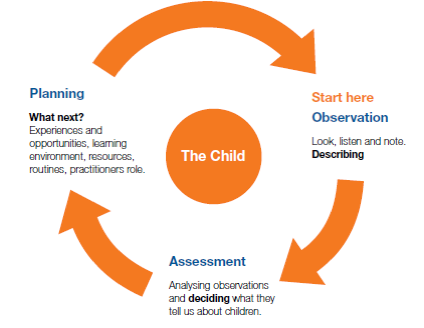
EMMAUS Church Of England & Catholic Primary School
We are friends journeying with Jesus in faith, hope and trust as we live, love and learn together
EMMAUS Church Of England & Catholic Primary School
Fir Tree Drive South Croxteth Park L12 0JE
Telephone:
Email:
Early Years Assessment

The EYFS Statutory Framework (2025) states that:
2.2 Assessment should not involve long breaks from interaction with children or require excessive paperwork. When assessing whether an individual child is at the expected level of development, practitioners should draw on their knowledge of the child and their own expert professional judgement. Practitioners are not required to prove this through collection of any physical evidence.
2.5 Ongoing assessment (also known as formative assessment) is an integral part of the learning and development process. It involves practitioners understanding children’s interests and what they know and can do, and then shaping teaching and learning experiences for each child reflecting that knowledge. In their interactions with children, practitioners should make and act on their own day-to-day observations about children’s progress and observations that parents and carers share. However, there is no requirement to keep written records in relation to this.
Assessment at the start of the Reception Year – the Reception Baseline Assessment (RBA)
2.11 The Reception Baseline Assessment (RBA) is a short assessment, taken in the first six weeks in which a child starts Reception.
Assessment at the end of the EYFS – the Early Years Foundation Stage Profile (EYFSP)
2.13 In the final term of the academic year in which the child reaches age five, and no later than 30 June in that term, the EYFS Profile must be completed for each child.
2.14 The Profile provides parents and carers, practitioners and teachers with a well-rounded picture of a child’s knowledge, understanding and abilities, their attainment against expected levels, and their readiness for Year 1. The Profile must reflect practitioners’ own knowledge and professional judgement of a child to inform discussions with parents and carers, and any other person whom the teacher, parent or carer judges can offer a useful contribution.
2.15 Each child’s level of development must be assessed against the early learning goals. Practitioners must note whether children are meeting expected levels of development, or if they are not yet reaching expected levels (“emerging”).